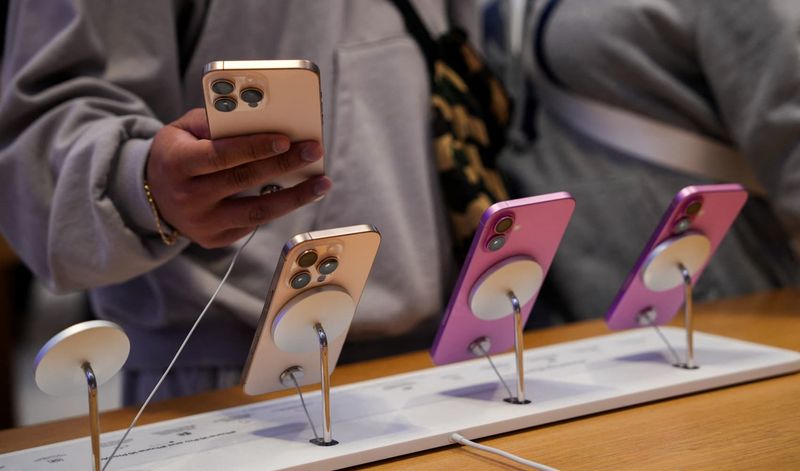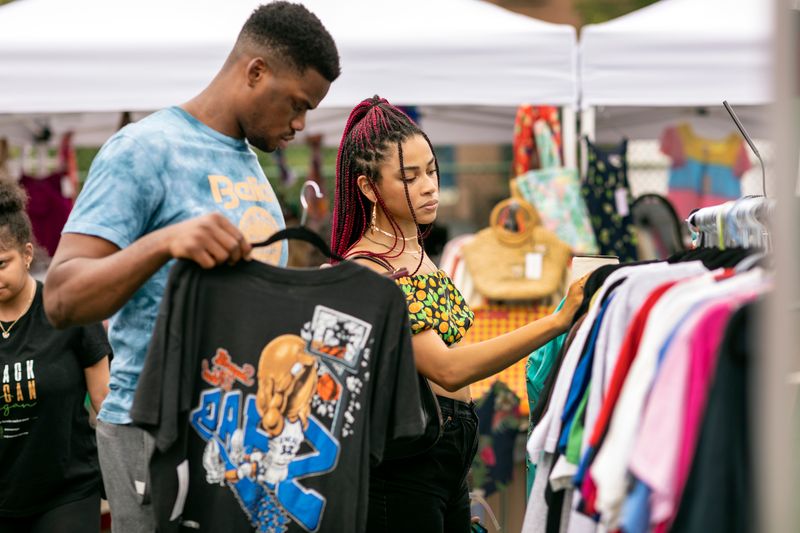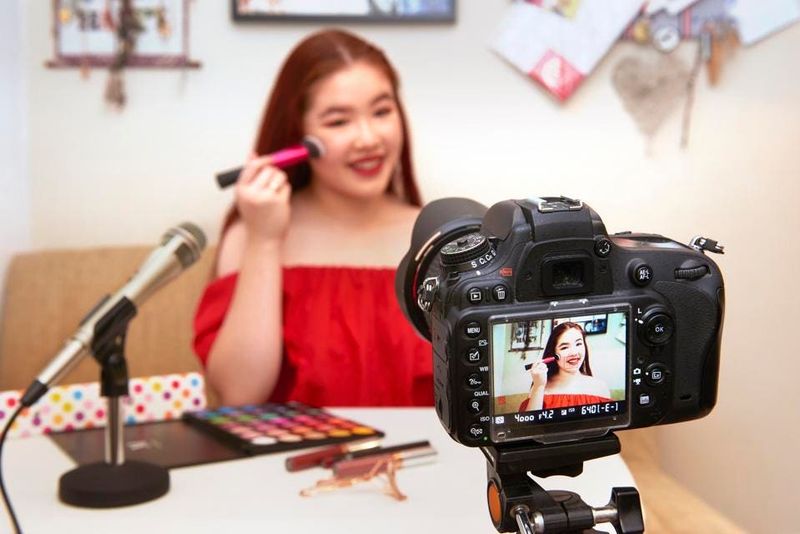Every generation has its own unique way of doing things, and Gen Z is no different. Born between 1997 and 2012, this generation has grown up with smartphones, social media, and a completely different view of the world. Many of their habits and trends can seem puzzling to older generations who grew up in a very different time.
1. Digital Detox Challenges
Young people today voluntarily disconnect from their phones and social media for days or even weeks at a time. This might seem strange since they’re known for being always online.
Many Gen Z individuals feel overwhelmed by constant notifications and digital pressure. They create challenges where they put their phones in boxes or delete apps temporarily.
Older generations often don’t understand why someone would need to formally “detox” from technology. They remember life before smartphones and wonder why young people make such a big deal about unplugging from devices.
2. Thrift Shopping as a Lifestyle
Shopping at thrift stores and secondhand shops has become incredibly popular among young people. They spend hours hunting for vintage clothes and unique pieces that nobody else will have.
This trend goes beyond just saving money. Gen Z sees thrift shopping as better for the environment and a way to express their individual style.
Many older adults remember when buying used clothes was something you did only when money was tight. Now their grandchildren choose thrift stores over expensive mall brands, which can be confusing for previous generations.
3. Plant Parenting Obsession
Young adults today treat houseplants like beloved pets or children. They give their plants names, talk to them daily, and share photos of their “plant babies” on social media.
Gen Z spends significant money on rare plants and elaborate care routines. They research plant care like it’s a serious hobby and get genuinely upset when a plant dies.
Older generations often find this level of plant devotion amusing or excessive. They remember when plants were just decorations that you watered occasionally, not family members that required daily attention and Instagram posts.
4. Aesthetic-Based Life Choices
Everything must match a specific “aesthetic” or visual theme. Gen Z plans their outfits, room decor, and even food choices around creating the perfect look for photos.
Popular aesthetics include “cottagecore,” “dark academia,” and “minimalist.” Young people will completely change their style to fit these themes perfectly.
Older generations often don’t understand why someone would choose a coffee shop or outfit based on how it looks in pictures. They prioritize function and practicality over whether something fits an Instagram-worthy theme or visual style.
5. Micro-Influencer Culture
Young people with just a few hundred followers consider themselves influencers and expect free products from companies. They reach out to brands asking for sponsorship deals and free merchandise.
Even teenagers with small social media accounts create “media kits” and professional emails to pitch themselves to businesses. They treat their online presence like a serious business venture.
Older adults often find this presumptuous or unrealistic. They wonder why young people think companies should give them free things just for posting photos, especially when they have such small audiences.
6. Oversharing Mental Health Struggles
Gen Z openly discusses therapy, anxiety, and depression on social media like previous generations talked about the weather. They share detailed posts about their mental health journey and treatment.
Young people create content about their therapy sessions, medication experiences, and coping strategies. They see mental health advocacy as important and necessary work.
Many older adults feel uncomfortable with this level of public sharing about personal struggles. They were raised to keep private matters private and worry that oversharing could hurt young people’s future opportunities or relationships.
7. Canceling Plans as Self-Care
Young people regularly cancel social plans at the last minute and call it “self-care.” They prioritize their mental energy over social obligations without much guilt or explanation.
Gen Z believes that forcing yourself to socialize when you’re not feeling up to it is unhealthy. They’d rather stay home and recharge than push through uncomfortable situations.
Older generations often see this as rude or unreliable behavior. They were taught that you honor your commitments regardless of how you feel, and they don’t understand why young people think their mood justifies disappointing others.
8. Turning Hobbies into Side Hustles
Every hobby must become a potential source of income. Gen Z turns their interests in art, crafts, gaming, or music into online businesses almost immediately after starting them.
Young people create Etsy shops, YouTube channels, and social media accounts to monetize their skills. They see every talent as an opportunity to make money online.
Older adults often think hobbies should stay hobbies for enjoyment and relaxation. They worry that turning everything into a business takes away from the simple pleasure of doing something just because you love it, not for profit.
9. Romanticizing Mundane Activities
Simple activities like grocery shopping, cleaning, or studying become Instagram-worthy events. Gen Z creates elaborate setups and documentation for the most ordinary parts of life.
Young people film themselves doing laundry, making their beds, or organizing their closets like these are exciting adventures. They add music and filters to make everything look magical.
Older generations find this exhausting and artificial. They remember when you just did chores without documenting every step, and they don’t understand why young people need to make everything into content for social media.
10. Collecting Experiences Over Things
Gen Z would rather spend money on concerts, travel, and unique experiences than on material possessions. They prioritize making memories over accumulating stuff in their homes.
Young people will save up for months to attend music festivals or take trips, but they’ll happily live with minimal furniture and decorations. They see experiences as more valuable than objects.
Many older adults worked hard to buy homes filled with nice things and can’t understand why young people don’t want the same. They see material possessions as signs of success and stability that shouldn’t be dismissed.
11. Making Everything a Personality Quiz
Young people constantly take online quizzes to determine which character, aesthetic, or category they belong to. They share these results like important personal discoveries about their identity.
Gen Z uses quiz results to explain their behavior and preferences. They’ll say things like “I’m such a Hufflepuff” or “That’s so Virgo of me” as genuine personality analysis.
Older generations often see these quizzes as silly entertainment rather than meaningful self-discovery tools. They don’t understand why young people put so much stock in random internet assessments about their personality or future.
12. Nostalgic for Eras They Never Experienced
Gen Z feels deep nostalgia for decades like the 1990s and early 2000s, even though they weren’t alive or were babies during those times. They idealize these periods through social media and pop culture.
Young people collect vintage items, listen to old music, and adopt fashion styles from before they were born. They talk about missing simpler times they never actually experienced.
Older adults who lived through those eras find this amusing since they remember the real problems and challenges of those times. They wonder why young people romanticize periods that weren’t as perfect as social media makes them seem.
13. Creating Fictional Scenarios in Their Heads
Young people spend hours imagining elaborate fictional scenarios and conversations that will probably never happen. They create detailed mental stories about their future or alternative versions of their lives.
Gen Z openly discusses their “daydreaming” and “shifting” practices where they mentally escape to imaginary worlds. They see this as a normal and healthy way to cope with stress.
Older generations worry that this level of fantasy thinking might prevent young people from dealing with real life effectively. They prefer focusing on actual problems and solutions rather than spending time in imaginary scenarios that don’t help with real-world challenges.















Comments
Loading…